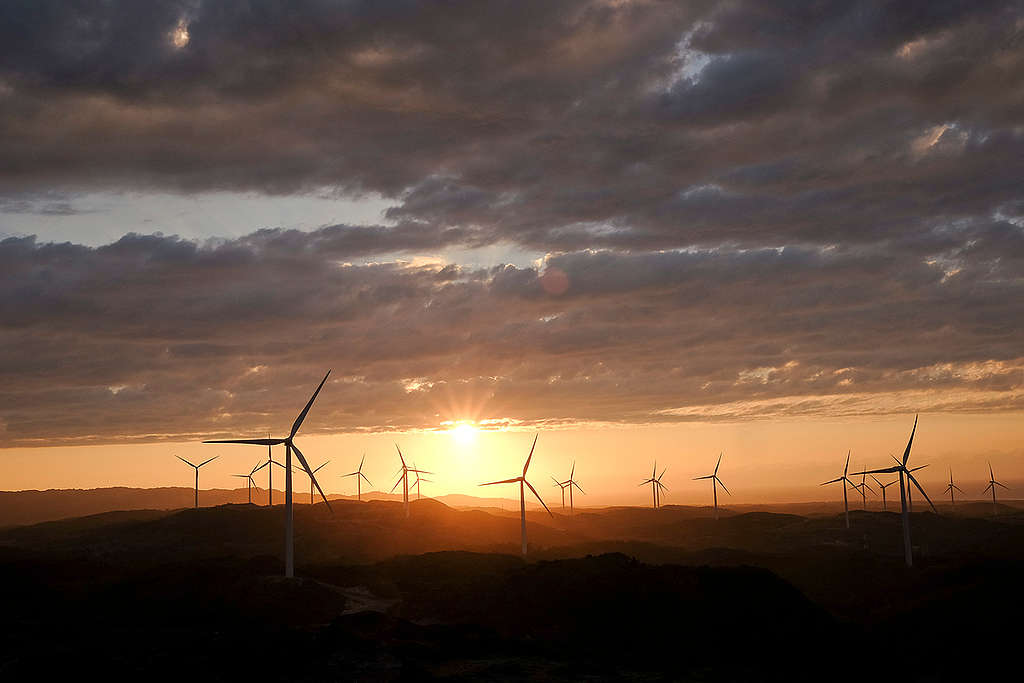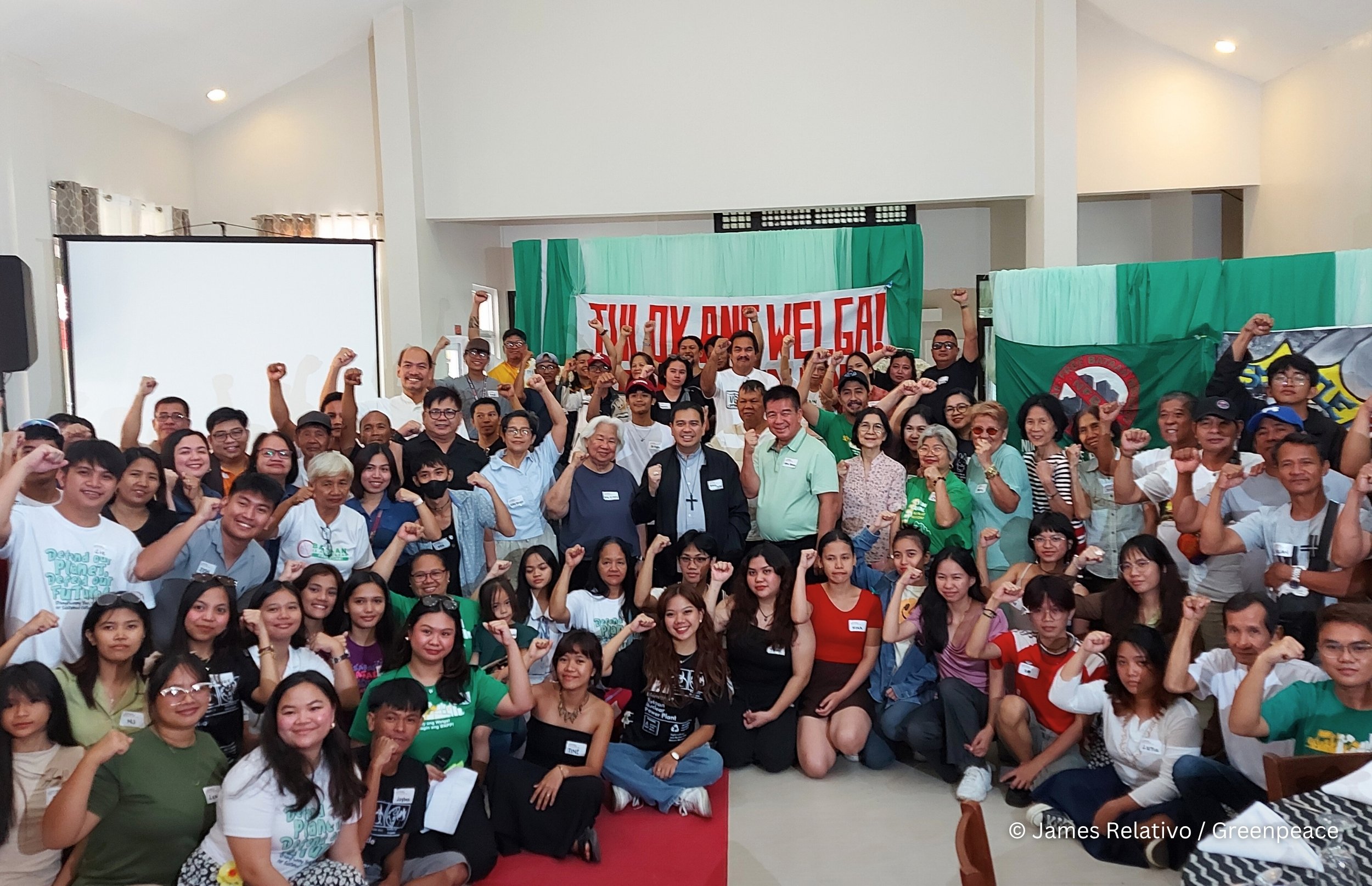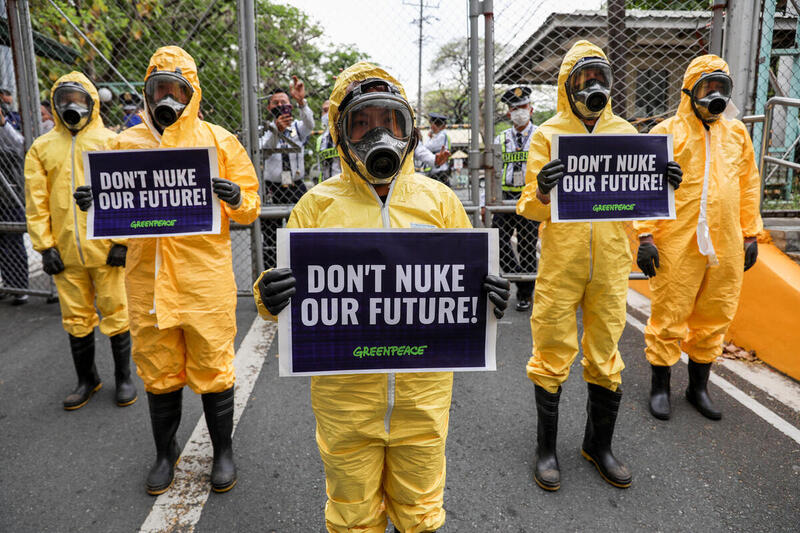QUEZON CITY, Philippines — A day after President Rodrigo Duterte urged world leaders to strengthen their commitment to fight the climate crisis, a new Greenpeace report revealed that the Philippines will not be able to reach its commitment to keep global temperatures below 1.5-degrees global temperature with the Department of Energy (DOE)’s version of the Philippine Energy Plan.
According to the report, Southeast Asia Power Sector Scorecard [1], the Philippines was an early leader on renewable energy (RE) after the introduction of the RE Act in 2008, but subsequent years have seen the share of coal in the energy mix rise to 52%. The report from Greenpeace Southeast Asia gave the country a “D+” failing mark for its “addiction to coal power generation,” which forces the country to be locked into long-term fossil fuel contracts.
“President Duterte has called for urgent action to the climate crisis—but it seems that this has fallen on deaf ears in the DOE, whose lackluster approach to RE and support for coal is preventing us from fulfilling our 1.5-degree commitment,” Greenpeace Philippines Campaigner Khevin Yu said.
The scorecard maps business-as-usual and best-case RE scenarios for eight countries in Southeast Asia using the International Panel on Climate Change (IPCC) 1.5 degrees pathway. This graded snapshot of each country’s energy transition, fossil fuel exclusions, solar and wind market development, policies and pricing, competition, and Covid-19 stimulus benchmarks progress on RE and climate action. According to the report, coal power dominance has made the Philippines highly dependent on imported fossil fuels, with a near tripling of its thermal coal imports in less than 10 years. And, under current plans, the Philippines will have over 60% of coal in its energy generation mix in 2030, and only around 5% of solar and wind.
However, the report also cited that the country can still be on track with global climate targets if it creates exclusions for new coal and gas starting this year, increase its RE target to 50% by 2030, and improve grid development for utility-scale solar and wind.
“The country’s vested coal interests, erratic policy shifts, and political bottlenecks hinder the transition to a low-carbon pathway. We still have a workable chance to be on track with our commitments, but DOE must be more ambitious on RE with its energy plan for 2018-2040, and rally energy companies to shift away from coal,” Yu added.
Greenpeace Philippines said DOE as well as energy companies must heed Duterte’s call for urgent actions to meet climate targets through an ambitious energy transition plan that will ensure a green and just recovery and better normal after the COVID pandemic.
“Because of this pandemic, we have an opportunity to shift to forward-looking investments that do not harm the environment and peoples’ health and well-being. There is a whole range of opportunities for green, people-centred investments in RE, compared to harmful fossil fuels. As part of its call for urgency on climate action, we are calling on the Duterte administration to initiate a managed phase-out of fossil fuel-dependent energy generation and infrastructure, reshape the economy and direct energy policies to respond to the climate crisis,” said Yu.
The launch of the report also coincided with the global climate strikes, which saw young Filipino climate advocates calling for the government and corporations to implement bold climate actions and uphold #ClimateJustice.
Notes:
[1] Full copy of the scorecard report is here
[2] Coal expansion by the Philippines’ biggest energy companies will hinder the country’s transition to a low carbon future, and can lock the Philippines into at least two more decades of overreliance on fossil fuels. Read more: https://www.greenpeace.org/philippines/press/3768/energy-companies-coal-proposals-set-to-deepen-ph-overdependence-on-fossil-fuels/
Photos for press use can be found here.
Media contact:
Angeli Cantillana
Communications Campaigner, Greenpeace Southeast Asia – Philippines
[email protected] | +63 998 595 9733


![[Blog] WHEN THE TIDE BECOMES THE TEACHER](https://www.greenpeace.org/static/planet4-philippines-stateless/2025/06/95c8411e-9a04f785-4293-46a6-a6cf-425f0a384682.jpg)

